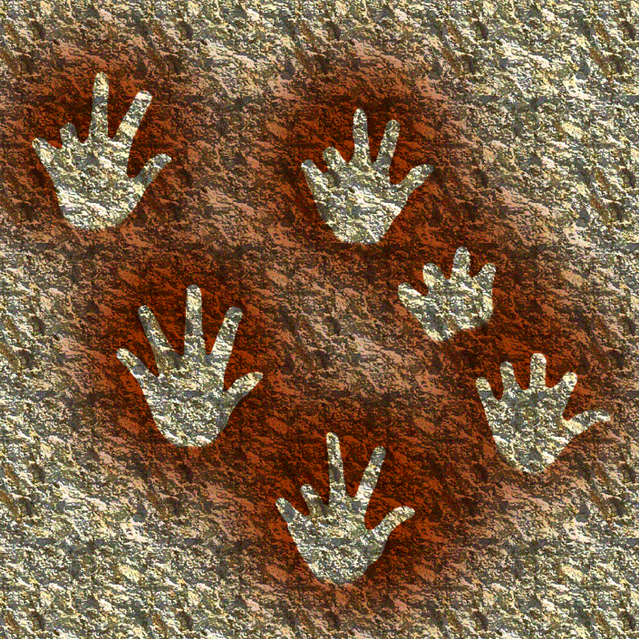Empathy
Caring for Others Is What Made Our Species Unique
But there is a dark side to our empathetic nature. Here's how to avoid it.
Posted October 28, 2015

Graphic images of shipwrecks and displaced people in the current refugee crisis have shaken many of us to our core. But why did it take images in Facebook feeds for privileged members of western societies to feel personally concerned? Why did we stop caring so quickly, and why aren’t we doing anything about a crisis that concerns us all? Why aren’t we doing anything for the sick and poor in our own towns, cities, and countries?
Probing the core of what makes us human can seem rather bleak in these times of humanitarian crisis. That we have such a crisis to begin with speaks to the terrifying violence, callousness and ignorance we are all capable of. But there is also something deeply precious about our unique nature-nurture, and now more than ever, it is time to remember, honour, and summon that part of the human in each of us.
Altruism, cooperation, and caring for the vulnerable is what made our species unique. It is empathy and cooperation, not self-interest and competition, that drove our physiological, cognitive, linguistic, cultural, social, and technological evolution. We wouldn’t be the large-brained, neurally-plastic, intelligent, cumulatively-learning, empathetic beings that we are without the mutual help that characterizes our everyday interactions. Our evolutionary history is one of collective child-rearing, cooperative hunting and gathering, caring for elders and the sick, and freely sharing information. Raising weak, slow-maturing human infants requires immense amounts of collective effort and the free sharing of knowledge, attention, time, love, joy, and fun. This is a miracle that we have reproduced in each generation. That each and every one of us is able to walk, think, talk, and imagine in one or more language(s) and navigate complex social worlds is a testament to this collective miracle. We owe this miracle to everyone alive today, and all that came before us. We could never be our own selves, in other words, without others – without all others in time and space!
Long before we domesticated plants and animals and settled in cities, our ancestors kept their elders alive through such free love and care. We have solid evidence that Neanderthals cared for elders who were of no economic benefit to the group. Our ancestors “incurred such costs” freely and easily out of sheer empathy, but also because elders are precious sources of love, stories, and fun – because they help make us who we are.
So where is the catch?
A popular account that runs from most economic theory to pop evolutionary psychology is that the cooperative nature of our species gives rise to a so-called “free-loader” problem. In the famous stag-hunt scenario, two hunters figure out that they reap longer-lasting benefits if they forego their own individual pursuit of small game and jointly concert their effort to track a deer, which can be brought home to feed a large group. It is through such scenarios, or so the story goes, that cooperation evolved. But by this account, many people benefit from the work of others without having to pitch in – and so the free-rider problem is born! Thus, a dominant trope in evolutionary psychology claims that the evolution of social intelligence was crafted in efforts to deter free loaders. In this cognitive-arms-race model, humans evolved fine-honed socio-cognitive abilities in a constant race for free-loading and free-loader detection: the free-loaders become better at deceiving the group, and the group better at outsmarting free-loaders, and thus are good mindreading genes passed on and expressed in ontogeny. This is the so-called Machiavellian Intelligence Hypothesis.
But there is another – some would claim, better – version of this story. For philosophers and evolutionary theorists like Kim Sterelny and Tad Zawidski, free-loading was not always the ‘problem’ we make it out to be in our ruggedly individualistic capitalist societies. By their account, often summarized as Cooperative Foraging Hypothesis, our species survived, evolved and thrived precisely because of ongoing collective efforts to ensure that everyone got their share and was kept alive, regardless of the symmetry of contribution. This view is supported by a wealth of ethnographic evidence from past and contemporary hunter-gatherer, horticulturalist, and even agrarian societies. What is more, the surprising lack of archeological evidence for intra-and-inter group violence and warfare prior to the rise of agriculture 6000 years ago has lent more clout to the emerging view that altruism and peaceful cooperation were much more commonplace than previously assumed. This view offers a sharp and refreshing contrast to the Hobbesian myth of “nasty, brutish, and short” lives in a “state of nature” endorsed by Steven Pinker in his popular book on the historical decline of violence. In the cooperative foraging view of human nature-nurture supported by ethnographic, archeological, and experimental evidence, selfishness and free-loader worries are not an inevitable expression of our nature, and are understood as historically specific social problems that emerge in stratified societies – particularly those that are dependent on money.
In his excellent ethno-history of money and passionate debunking of the rational-actor, homo econominus view of human nature, anthropologist David Graeber points out that for most of human history, the reciprocal expectation that social obligations had to be repaid in a symmetrical, eye-for-an-eye manner was simply not the norm. If an Iroquois hunter needed a new pair of moccasins, Graeber reminds us, he or she did not have to worry that it would not be tradable for meat. They would simply go to the longhouse and ask for a new pair; in the same way that anyone from the longhouse would have gotten their share of food when requested. In another famous story recounted by Graeber, the anthropologist Peter Freuchen, living among the Greenland Inuit, once found himself returning to his tent hungry after an unsuccessful hunt on the sea ice. Upon waking to a pile of walrus meat placed before his tent, he went to find the band’s best hunter to thank him for his gift. The hunter would have none of it:
"Up in our country we are human!”, the hunter told Freuchen, “and since we are human we help each other. We don't like to hear anybody say thanks for that. What I get today you may get tomorrow."
For Graeber, this kind of altruism still characterizes most of our everyday interactions. What’s in it for you, after all, when you stop a stranger to let them know they dropped their wallet, when you freely give them directions, or watch their belongings on a beach or at a café? Absolutely nothing! Nothing beyond the intrinsic, automatic urge to help a fellow human.
How to make sense, then, of such horrors as genocide, racism, chronic inequalities and refugee crises?
Where did we go wrong? How did we venture so far astray from the good values of our hunter-gatherer cousins? Could it be, then, that the Machiavellian tendencies that so many evolutionary psychologists believe are at the heart of our nature are the recent byproduct of increasingly divided, competitive, anomic societies? If so, then how did we get there with such standardized precision?
One way to tackle this question is to examine how intuitive cooperation gives rise to conformity and rule-following, even when the rules are not made explicit. This is one of the most basic forms of pro-social behaviour universally found among humans that has been observed and replicated experimentally in children across cultures.
It is precisely because our brains, minds, and bodies are shaped socially in phylogeny and ontogeny (in evolutionary history and in our individual lifetimes) that we are uniquely prone to this conformity. For Tad Zawiski, the evolutionarily older trait that makes our species unique is not so much (or not only) the inferential ability to 'mindread' and compute each other’s mental states propositionally, but a capacity for mindshaping; that is to say, for shaping each other’s behaviour through imitation and natural pedagogy – the very intrinsic drive to help, learn from and teach each other freely that I have been discussing so far.
Another way to look at the problem is through the lens of empathy; or to distinguish between what we may term deep and shallow levels of empathy.
Empathy requires the ability to put oneself in someone else’s perspective. Intuiting ‘correct’ behaviour from a set of implicit rules (something at which humans are extraordinarily skilled) requires just such perspective-taking abilities. We behave according to the way we expects others to expect us to behave in any given context. This is a highly complex embodied cognitive operation that we engage in without conscious effort in all but the most trying of everyday actions, from knowing how and where to sit on a bus or waiting room to ignoring the homeless or experiencing xenophobic shivers. Bystander experiments in social psychology have shed ominous light on this angle on our social minds: as strange as it may seem, someone being harassed in public is more likely to be helped by a stranger if there are less people around; if the collective mode of attention is one of callousness and ignorance, breaking that spell becomes counter-intuitive and very difficult for all involved.
Consider the following scenario. You are sitting in a crowded subway, and notice a pregnant woman standing by the doors. Every part of you is aching to get up and offer your seat (deep empathy), but everyone on the train is looking down at their mobile and blocking off the social world around them with their headphones. You find yourself, somehow, too shy to offer help.
You leave the train filled with shame, and soon forget about the incident. Your basic empathetic abilities in this case are translated into a pro-social urge to enforce local norms. This is what I term shallow empathy.
The scenario described above is something we have all experienced. We experience it on a daily basis. We experienced it with tears and horror when we saw the picture of the dead Syrian child washed ashore on the Turkish beach in the midst of the September 2015 refugee crisis. We desperately wanted to help, but soon felt too shy or insignificant. Some of us shared the picture on social media and wept a little more; some of us donated money here or there, but soon, we all moved on to the next Facebook post about cats, cars, or vegan meals, and resumed our ignorant bliss as usual.
What it takes to break out of the hypnotic pull of rule-governed shallow empathy, then, is an approach to virtue ethics that is best exemplified in Confucian and Taoist traditions; one which, as neuroscientist and philosopher Francisco Varela argued can be broken down in cognitive-scientific terms. In the Confucian and Taoist practice of wisdom, the sage does not rely on abstract rules like those of western deontology, but rather trusts his or her intuition to act virtuously according to the minute particulars of each situation. Who would not ‘violate’ someone’s private property to rescue a child drowning in a residential swimming pool? Surely, the virtuous thing to do in such a situation is to break a rule in order to save a life. But how many of us would hesitate for too long before jumping that fence and wetting ourselves, cell-phone, wallet and all, to save that drowning child?
As we have seen, intuition is no simple matter. The ‘autopilot’, ‘immediate coping’, or ‘know how’ (in Varela’s terms) through which we navigate most of our everyday situations is deeply conditioned by largely implicit social regimes of attention that shape our every movement. This, in a nutshell, is what anthropologist Pierre Bourdieu described as the “habitus”, or the way in which our most ‘personal’ styles of thinking, moving, and feeling, are constrained by a broader cultural context. This larger social, political, economic and culture context, in turn, remains poorly understood and undertheorized by cognitive scientists. But once we are conscious of this problem, the virtuous approach entails an arduous back-and-forth monitoring of our conscious and unconscious intuitions, and the search for that right gut feeling that feels counter-intuitive most of the time. What it takes, in other words, is the right kind of higher-order cognitive functions paired with the right-kind of automatic intuitive mechanisms.
I was recently reminded of the beauty and difficulty of this dual-process flow of virtuous action after being surprised with the kindness of a stranger on rainy fall day. Returning North to Canada after a weekend of solitary walking in the Adirondack mountains, I had decided to hitchhike home and across the border to surrender myself to cooperative chance happenings. Things had been going well. I had been picked up in the rain on a lonely mountain road by an elderly couple in a station wagon filled with musical instruments. My new friends had gone 10 miles out of their way to drop me at a gas station by the highway. They had offered their address and phone number, insisting that I should contact them if I was unsuccessful in my effort to find a ride. But by then, hours had passed. I was wet and cold, sitting on my backpack with my thumb in the air, and none of the cars going North had stopped for me. As I re-entered the gas station with a heavy heart, seeking a moment of warmth and a cup of coffee, my self-pitying reverie was interrupted by a gentle hand on my shoulder. The elderly woman who was looking at me with a smile had sought me out in the coffee lineup to ask if I was ok. “I was driving South on the main road”, she explained”, “and felt sad for you when I saw you sitting there in the rain. After a while, I decided to turn back to give you some money”.
There! The woman had had an automatic, good, deep intuition upon seeing me on the side of the road. Her intuition had rapidly receded into automatized response to the anonymized regimes of attention of our culture, but she had subsequently engaged in the demanding work of reflecting on the experience and deciding to act.
After politely declining the woman’s offer and thanking her wholeheartedly, I returned to my spot on the road and was soon picked up by a swiss mountaineer who was driving from New York City to visit his boyfriend in Montreal. He drove me through the border all the way to the Montreal metro as we exchanged notes on the joys of mountain walking.
What lessons can we glean from this story?
An approach akin to the driving woman’s minimally counter-intuitive and maximally empathetic approach is what it takes to act on the good side of our nature. From there on, it turns out there is a lot we can do. Doing good simply begins with finding, honouring, and acting on that good side of our empathy – the one that made us want to offer our seat to the pregnant woman, or comfort the homeless man who was crying on the sidewalk. It also begins with a critical, ongoing examination of the values and modes of attention – implicit and explicit – that continually shape our relations with other people. In this process we may discover that our culture has fostered the wrong kinds of automatized value. Then, we may rediscover and learn from cultures that have made other-directedness a sacred tenet of what it is like to be human.
The tradition of care and hospitality to strangers, to be sure, has been encoded, honoured and kept alive in many languages, moral systems, and everyday modes of relations. This is what the African tradition of Ubuntu, “the quality of being human” stands for. In the island Mayotte off the coast of East Africa, people like to say mañka uluñu uluñu uluñu: “what makes a person is other people”.
In the postindustrial capitalist West, our deepest sense of Self has been shaped by the false notion that individual problems are distinct from social problems. Our nation-states have prospered through 500 years of colonial plunder, from which we inherited a sense of entitlement. It is our historical amnesia and geopolitical blindness that make us content, selfish, and ignorant. Yet, we are not entitled to any of the privileges we take for granted. More than our privileges, we owe our very life to humanity and the planet as a whole. This is a debt that, as David Graeber points out, can never be repaid. The road ahead, then, entails honouring this Gift through compassion, love and care for others, even – and especially! – when it seems socially counter-intuitive to do so.
So please welcome refugee families in your homes, and campaign for change. Campaign for labour, healthcare, and immigration law reforms in your countries.
Then think further and keep questioning your allegiances to such strangely violent and narrow rule-governed projects as race, class, and nation-states.
(c) Samuel Veissière, 2015.




